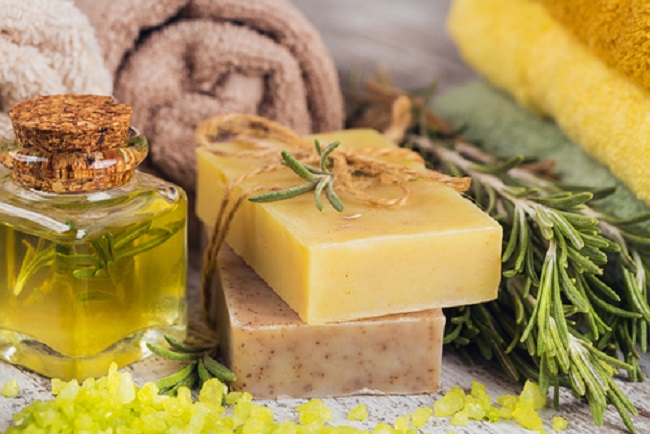
With a huge and vast selection of soap in the supermarket, drugstore, or your local organic store, which one is better? Soaps come in all shapes, types, colours, sizes, fragrances, and designs. The dilemma lies in knowing what you should be looking for in a bar of soap. A lot of people think using antibacterial soap will keep them and their family protected from bacteria and illness. Contrary to common belief, it may come as a surprise that antibacterial soap isn’t as promising as advertisements say they are. On the other hand, many soap bars on the market make numerous claims about being natural with ingredients such as milk, oat, oil, honey, and what not. This article will guide you through what to watch out for when shopping for soap and why you’re actually better off with natural soap.
To minimize toxins that enter the body, people usually actively try to do this by eating good food, hydrating with purified water, and filtering the air. What people don’t realize is that bacteria and toxins can also be absorbed through the skin. Most of the soap in the market actually contain different chemicals like dyes and fragrances that most should probably avoid. So, what should you look out for when buying soap and what are the benefits of using natural soap?
-
Page Contents
Natural soap contains organic chemicals
Because of the artificial ingredients and chemicals commercial soaps contain, they’re actually considered as “detergents.” Many of which have caused irritation and damage to the body since most ingredients are extracted from petroleum. On the other hand, natural soap only contains natural ingredients, which come from vegetable oil, animal fat, plants, and plant extracts. Natural ingredients have been proven to show improvements in the skin. StoneClean Soap, for example, carries such natural soap that prevents toxins from entering your body.
-
Natural soap contains glycerin
When soap is manufactured, it goes through a chemical restructuring process called saponification. During this process, oils and fats stick with sodium hydroxide (or lye) to create a salt of a fatty acid. The natural byproduct from this process is glycerin, a chemical which absorbs moisture from its surroundings. Commercial soaps undergo another procedure to remove glycerin in their product. Whereas, glycerin remains in natural soaps, making this natural bar of soap more moisturizing and nourishing to your skin’s natural oils.
-
Natural soap contains organic ingredients
When shopping for soap, many labels of soap will tell you that it was made with natural or organic ingredients. However, some companies only use these labels as a marketing ploy to lure inexperienced shoppers. As a rule of thumb, you may want to look for the ingredients label and see which ingredients are actually included. Ingredients that you should look out for are the following: oats, aloe, coconut oil, olive oil, goat’s milk, sunflower seeds, shea butter, Morrocan red clay, and lavender oil, just to name a few.

-
Natural soap is skin-friendly
The natural antibacterial soap can be rough on the skin and cause rashes, itchiness, irritation, or soreness. Even if you haven’t experienced those symptoms, chemicals found on antibacterial or commercial soaps often cause your skin to dry up over time. This would lead to cracked skin and wrinkles as time goes by. Natural soap contains organic oils that act as a moisturizer and cleans your skin without invasive and artificial chemicals. Even though it doesn’t have compounds that antibacterial soap contain, natural soap has natural antibacterial and anti-fungal properties of their own.
-
Natural soaps don’t harm the environment
By reducing chemical use, natural soap contributes in keeping the environment healthy as well and reduces chemical byproducts. No chemicals in natural soap mean that there are no chemicals that go down the drain and into the oceans. In addition to that, natural soaps are usually cruelty-free. Since most ingredients are natural, none of them are tested on animals before getting sold to the public. These kinds of soap are dermatologically tested on human skin, making sure it works with sensitive skin before it comes out to the market. Natural soaps prove to be gentle to the skin as well as the environment and animals.
Conclusion
As you can already see, natural soaps provide holistic skin care that not only prevents toxins from getting into your body but also from getting into the seas and oceans. Although taking the natural option would cost a couple of bucks more, natural soaps will keep you healthier and do no harm to the environment. Evidently, the extra cost is worth it. Hope this guide was able to change your perspective about soap and enlightened you to switch to natural soaps. Let us all do our part in the community to keep our families healthy and the environment free from harmful chemicals by using natural soap.